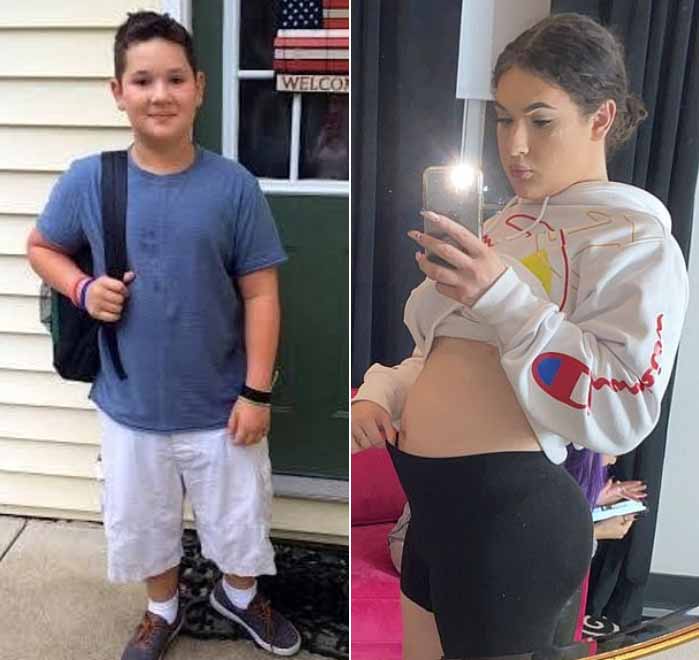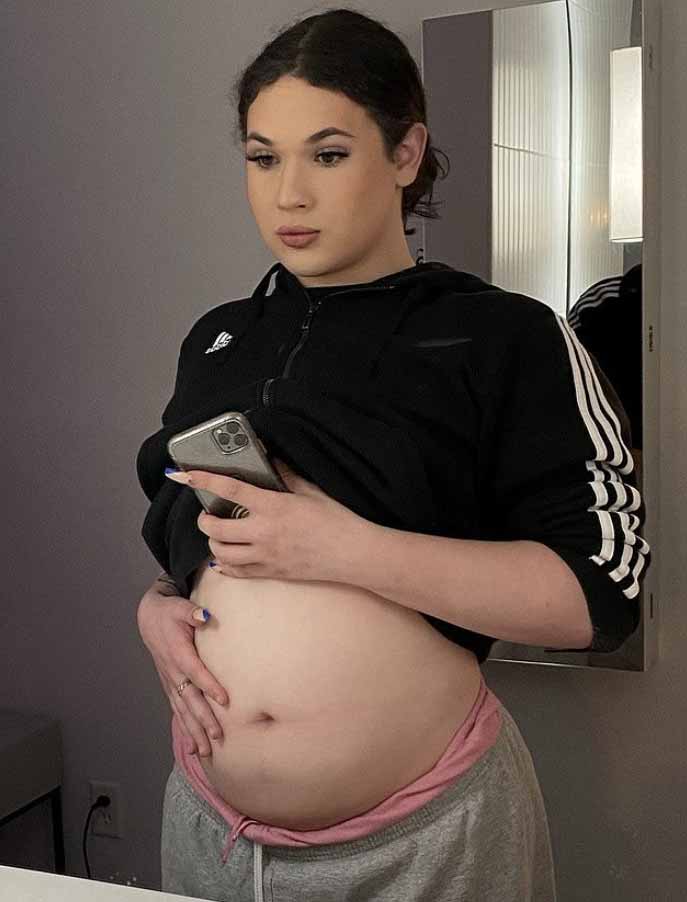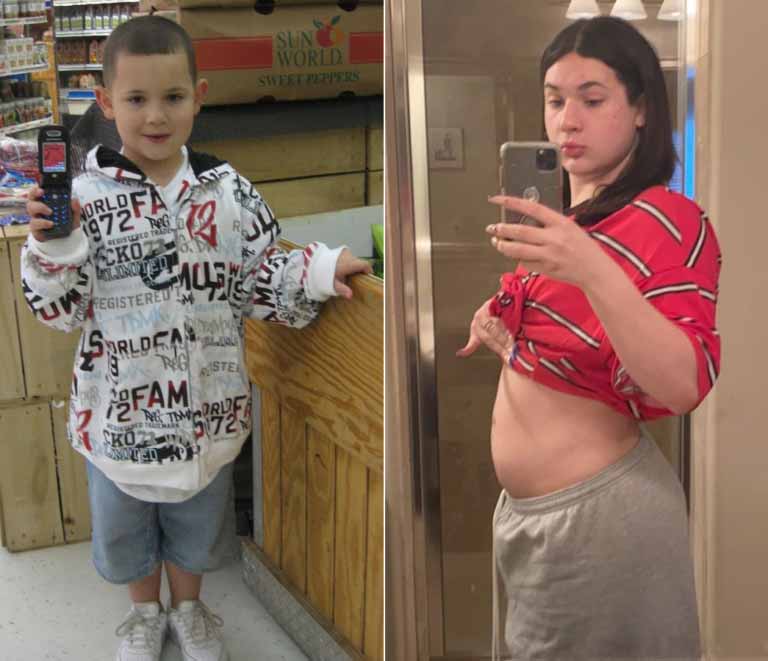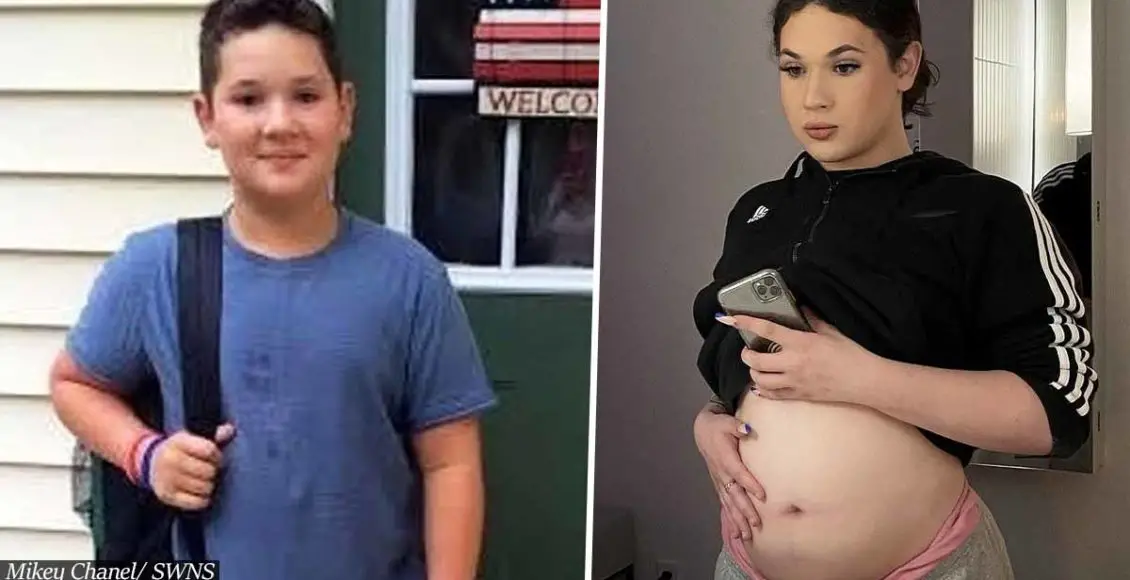Transgender teen raised as a boy pregnant after finding out she has functional female reproductive organs.
- Mikey Chanel, 18, who was raised as a boy, is now pregnant with her child.
- The teen was diagnosed with PMDS, meaning that she has external male genitalia, but female reproductive organs internally.
- She is now hoping to spread awareness of the condition and is happy that she has the chance to become a mother.

Despite being born and raised as a boy, Mikey Chanel, 18, from Boston, Massachusetts, now identifies as a woman. As Daily Mail reports, while she was still in her mother’s womb, tests identified her as a baby girl. However, doctors and her parents were shocked to discover she was born with male genitalia.
Besides, while growing up, Chanel never truly felt like a boy. She said:
“It was obvious to everyone that I was different right from the start. At age five I’d be playing with my aunt’s purses and putting on my mom’s lipstick. I never felt like a boy. I was quite effeminate and I never really went through a whole “boy puberty” thing.”
Speaking about her childhood, the 18-year-old shared she was bullied at school by kids calling her “a f****t, a tranny, since third grade.”
When Mikey was 13, she came out as gay and later wondered if she might be transgender.
While undergoing routine tests last year, the teen learned from doctors that she had internal female reproductive organs. She explained:
“They told me that I had a cervix, ovaries, uterus and fallopian tubes and that I could get pregnant if I wanted to. I actually thought it was a joke. I didn’t even know this was possible. I was like “Haha where are the cameras?”. Then they showed me my uterus on the screen.”
It turned out Chanel had Persistent Müllerian duct syndrome (PMDS) – a rare condition in which a person has external male genitalia, but female reproductive organs internally. Medical experts advised the teen to undergo a hysterectomy, as this unusual condition may lead to severe, life-threatening complications.

After finding out that her male reproductive organs were infertile, Mikey felt that she couldn’t turn down the chance to conceive her own child before undergoing the procedure. She said:
“People with PMDS are susceptible to cancer and tumors and the risk is lessened if you have a hysterectomy. My male parts came back infertile but I was told that my ovaries were functioning. I was in a state of shock for a couple of weeks then I realized that I wouldn’t be able to have a child unless I carried it myself, and soon. I always knew I wanted to be a parent. I used to play with baby dolls when I was little and I’ve always seen kids in my future, so I decided, ‘It’s now or never I have to try and get pregnant.'”
The transgender teen underwent a series of procedures and is now four months pregnant.
One of the procedures Mikey endured was ICSI, which involves donor sperm being injected directly into a woman’s egg to fertilize the embryo. She later had three fertilized embryos implanted into her fallopian tube via an abdominal cavity. The future mom explained:
“I was told there was only about a 20 percent chance it would work, but it worked, and I was so shocked but happy. I can’t wait to be a parent. My parents weren’t around much when I was a kid, so I want to be the parent that my parents couldn’t be, I really want to be there for my child. ‘I want to be there for everything from the first step to the first word to them graduating from college, I want to be supportive in everything and anything they chose in life.”
Chanel says she feels more like a woman now after taking estrogen to help with her pregnancy. Moreover, she hopes to continue her transition even after her baby is born.

By sharing her story, Mikey’s goal is to spread awareness about her rare condition PMDS. She stated:
“Nobody really speaks about this, most people have never even heard of it. There isn’t a lot of research about it and there aren’t a lot of tests, often it’s found accidentally, like in my case. I feel like there should be more research, I’m just trying to educate people about it. Once people understand it could break a really big stigma with gender and within LGBT communities.”



